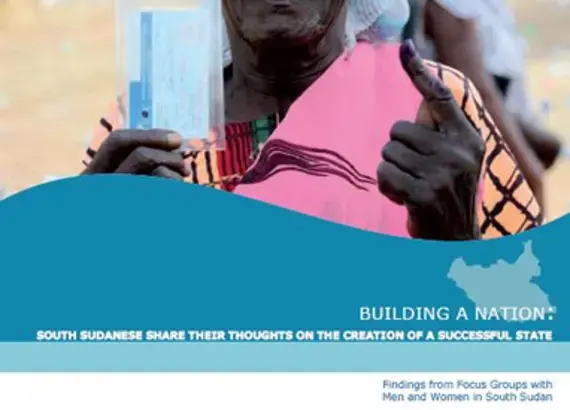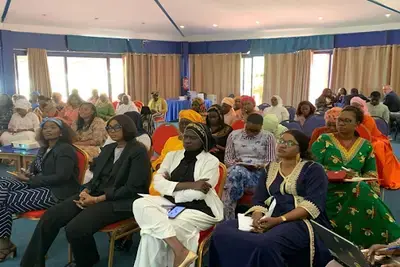
Success Story
NDI Focus Group Research Documents South Sudanese Views on Building a New Nation
As the people of South Sudan undertake the task of building a new nation, public opinion research conducted by NDI shows they are optimistic about South Sudan’s future while also concerned about the fundamental challenges it faces.
In a report released today, 860 participants in 67 focus groups described their vision for South Sudan as democratic, peaceful, fair and united. The participants also shared their views on the barriers to building the new nation, identifying the main challenges as insecurity, underdevelopment, tribalism and corruption. The handling of these key issues, the participants believe, will determine the success or failure of the newly-independent South Sudan.
A peaceful and mutually beneficial relationship with South Sudan’s northern neighbor, Sudan, is also important to participants. Most support a “soft border” with Sudan – with low-tariffs and few crossing restrictions – and accept that South Sudan must pay a transit fee to Sudan for the transport of oil to its port on the Red Sea. The status of Abyei is also a concern, with most participants saying that any means necessary should be employed to ensure it becomes part of South Sudan.
The focus group study – the 12th that NDI has done since 2004 – involved participants from all 10 states in South Sudan. Conducted March 16-April 6, 2011, it is the Institute’s first study after the Southern Sudan Referendum, which was held Jan. 9-15, 2011, and resulted in nearly 99 percent of voters supporting separation from Sudan.
Among the other key findings of the report were:
- Participants fear the consequences of tribalism and believe a multi-pronged approach – cultural, administrative, political and legal – must be taken to address it;
- Participants have high expectations for seeing major development changes shortly after independence;
- Participants strongly support Abyei and believe the name, culture, language and skin color of the area’s residents prove beyond a doubt that it belongs to South Sudan; and
- Participants desire a constitutional development process that includes all political parties and features strong input from citizens, including the requirement of a referendum for the adoption of the constitution.
Based on these and other findings, NDI offered recommendations to the government of South Sudan, civil society and the international community to ensure that the development of the world’s newest country will reflect the aspirations of ordinary South Sudanese citizens.
Specific recommendations include:
- Conduct a long-running public campaign highlighting the country’s defined values and the benefits of peaceful coexistence and cooperation;
- Manage development expectations by bringing citizens and government together to discuss development plans and progress, increasing citizen understanding and participation in the development process;
- Organize a public dialogue on tribalism to acknowledge the issue is a critical one that must be addressed and collect citizen views throughout the country on how to mitigate its negative influence on South Sudan society and government;
- Increase transparency on financial matters and publicize nation, state and county budgets so that citizens are better able to hold their officials accountable; and
- Conduct extensive consultations, through elected officials, traditional authorities and media, with citizens on all major issues facing the nation, such as development, tribalism and political systems.
Related:
Published Nov. 28, 2011



